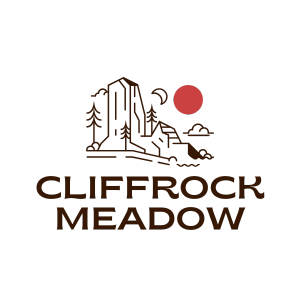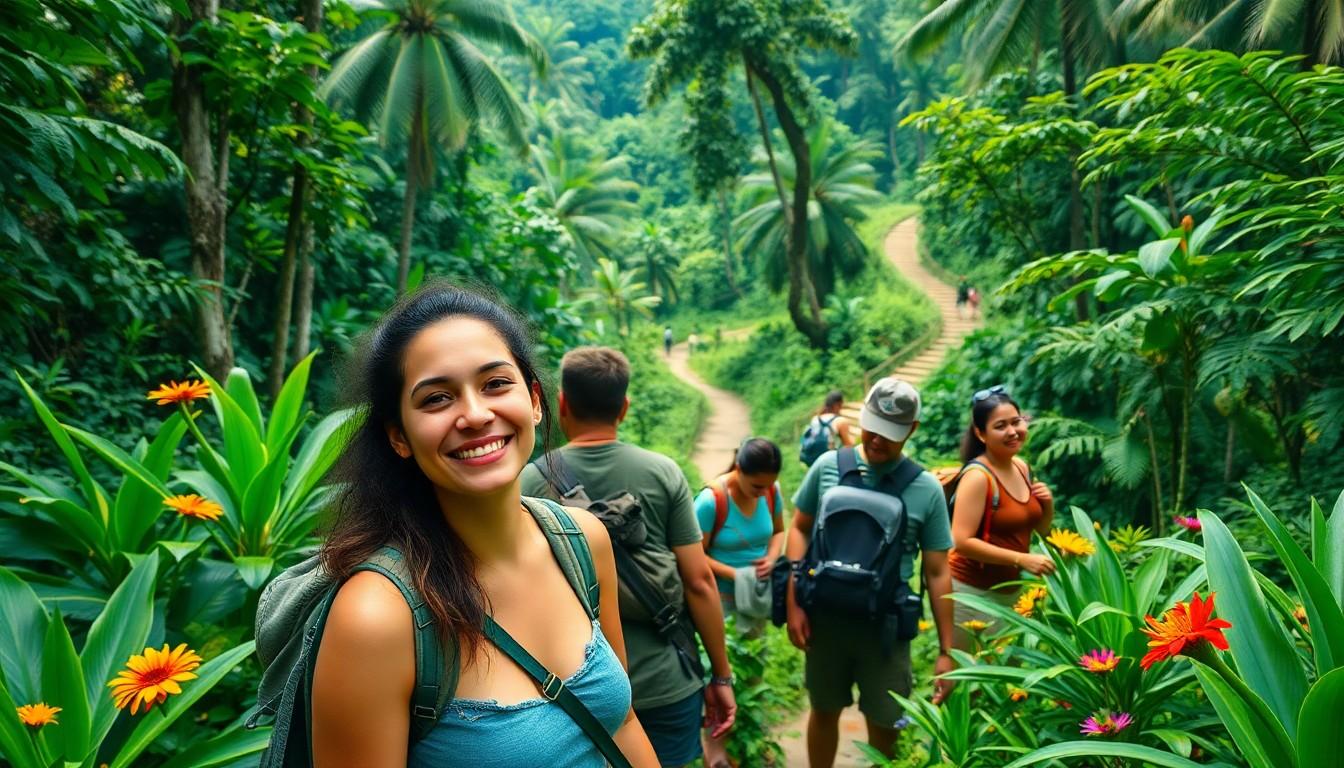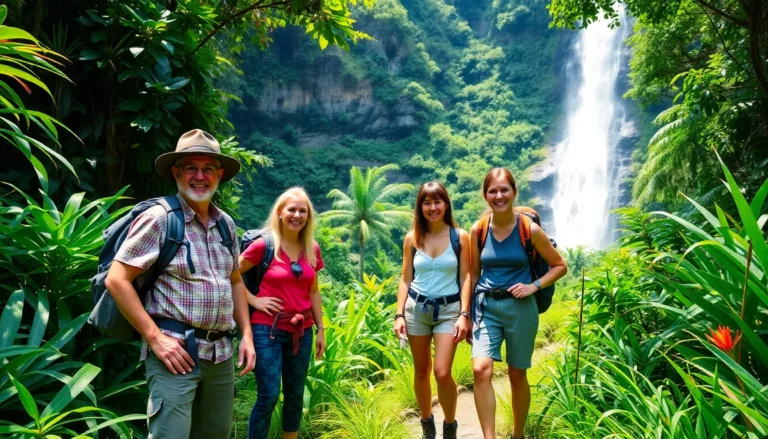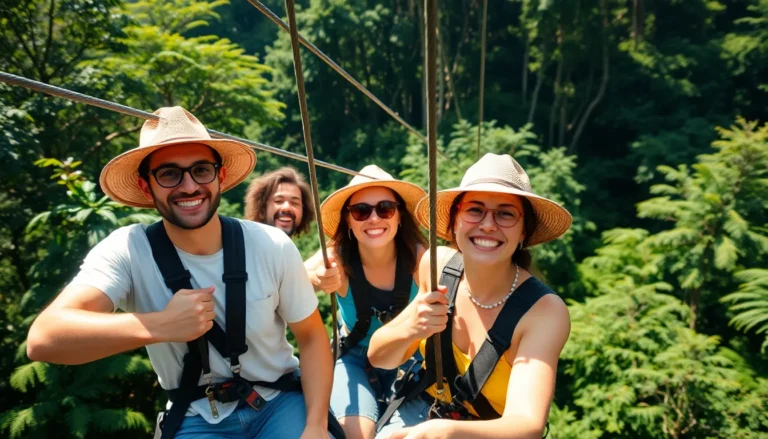Imagine swapping crowded beaches for lush jungles and vibrant ecosystems. Eco-tourism in the Dominican Republic offers just that—a chance to explore the island’s natural beauty while treading lightly on its resources. It’s not just a vacation; it’s a love affair with nature, where every hike, birdwatching session, and local farm visit helps preserve this tropical paradise.
eco tourism dominican republic
Eco-tourism in the Dominican Republic offers an immersive experience in the nation’s diverse ecosystems. Travelers can engage in activities such as hiking through lush rainforests and observing various bird species in their natural habitats. Exploring local farms provides insight into sustainable agricultural practices and fosters connections with local communities.
The island’s commitment to preserving its natural resources greatly enhances its eco-tourism appeal. Visitors can witness the stunning beauty of the Dominican Republic while contributing to conservation efforts. Experiences such as visiting national parks and protected areas promote ecological awareness and appreciation.
Many eco-tourism operators prioritize environmentally friendly practices. They offer guided tours that educate tourists about the importance of biodiversity and ecosystem preservation. Local guides often share knowledge about native flora and fauna, enriching the visitor experience.
Adventure seekers can explore unique terrains like mountainous regions and coastal areas. Snorkeling and diving reveal vibrant coral reefs, showcasing the need for marine conservation. Beach cleanups organized by eco-tourism groups empower travelers to make a positive impact on the environment.
Overall, eco-tourism enhances the visitor’s connection to the natural world. Tourists increasingly prefer these experiences, which not only benefit them but also support local economies and communities. Embracing eco-tourism results in responsible travel that respects both people and nature.
Benefits of Eco Tourism
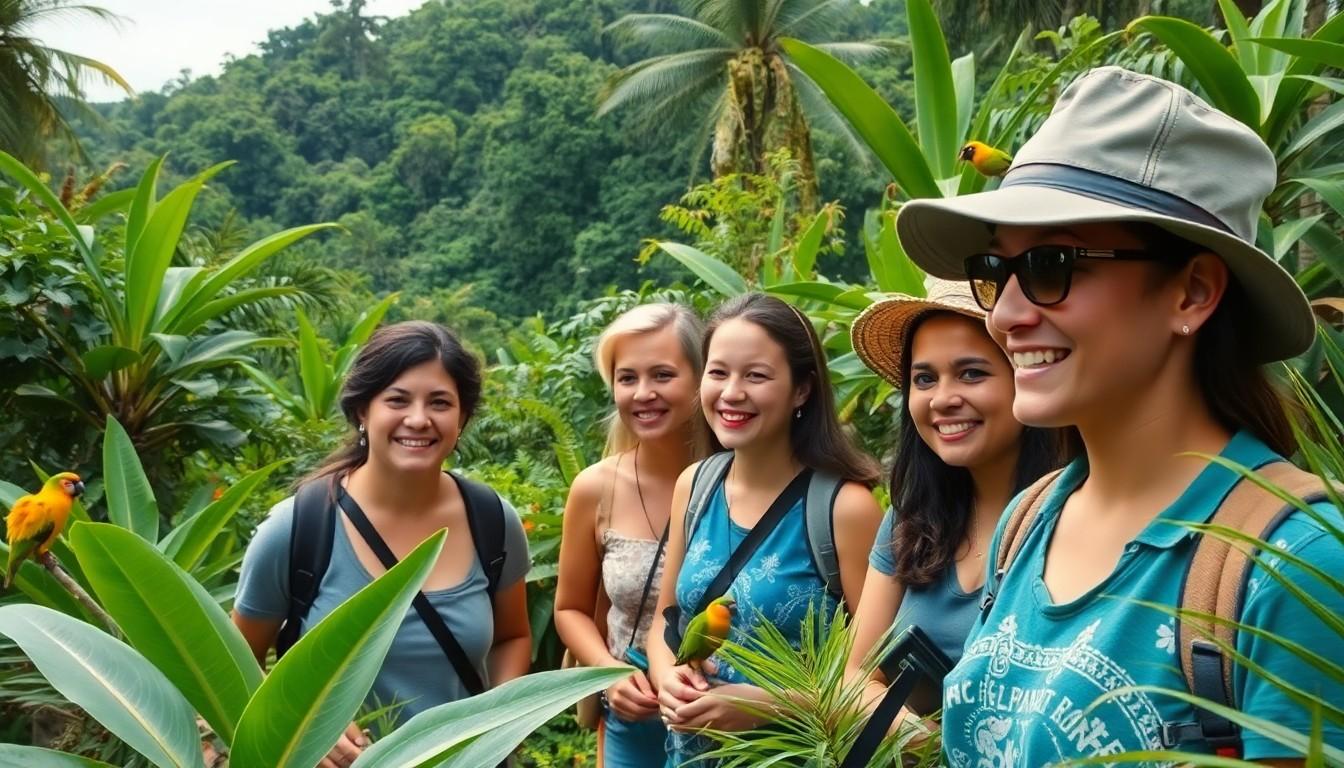
Eco-tourism serves as a catalyst for positive change on both environmental and economic fronts. Visitors experience not just beautiful landscapes but also the profound impact they make through sustainable practices.
Environmental Sustainability
Environmental sustainability is a key benefit of eco-tourism. Travelers participate in activities that promote conservation and biodiversity. Engaging in responsible tourism helps protect the island’s unique ecosystems, including its diverse flora and fauna. Many eco-tourism operators adhere to sustainable practices that minimize ecological footprints. By choosing eco-friendly accommodations and participating in educational tours, visitors contribute to habitat preservation. This collective effort fosters a deeper understanding of environmental issues, encouraging travelers to become advocates for nature even after their trip ends.
Economic Impact on Local Communities
Economic impact on local communities can be significant through eco-tourism. This form of travel generates income that supports small businesses and local artisans. By opting for locally owned accommodations, restaurants, and tour companies, travelers inject money directly into communities. Employment opportunities arise as eco-tourism grows, creating jobs in areas such as guiding, hospitality, and conservation. A strong emphasis on community involvement means that visitors experience authentic local culture while ensuring the benefits are felt economically. This mutually beneficial relationship allows communities to thrive while preserving their natural resources.
Popular Eco Tourism Destinations
The Dominican Republic boasts a variety of eco-tourism destinations, ideal for those seeking to explore its stunning natural landscapes. Each location presents unique opportunities for adventure and environmental appreciation.
National Parks and Reserves
Visitors can explore national parks like Jaragua and Los Haitises, both teeming with biodiversity. Jaragua National Park, located in the southwest, features diverse wildlife, including rare species like the Hispaniolan solenodon. Los Haitises National Park offers mangroves and limestone caves, providing a habitat for various birds. Trekking through these parks engages travelers with local ecosystems. Guided tours often highlight conservation efforts and educate participants about sustainable practices. Exploring these natural reserves fosters a deeper understanding of the environmental challenges faced by the Dominican Republic.
Beaches and Coastal Areas
The Dominican Republic’s coastline offers pristine beaches and vibrant marine life, perfect for eco-conscious travelers. Areas like Saona Island and Samaná Peninsula showcase stunning coral reefs, attracting snorkeling and diving enthusiasts. Engaging with these ecosystems, visitors uncover the importance of marine conservation. Several eco-friendly resorts focus on minimizing environmental impacts while promoting awareness of local conservation efforts. Activities such as whale watching in Samaná and turtle nesting tours champion wildlife protection initiatives. Each coastal destination emphasizes the delicate balance between tourism and nature, encouraging responsible travel choices.
Activities for Eco Tourists
Eco-tourism in the Dominican Republic offers a variety of enriching activities that connect travelers with nature while promoting sustainability.
Hiking and Nature Walks
Hiking enthusiasts find numerous trails in national parks like Jaragua and Los Haitises. These parks feature diverse landscapes ranging from lush jungles to rugged coastlines. Guided nature walks provide insights into the local flora and fauna. Inhabitants include unique species, such as indigenous birds and colorful butterflies. Participants often encounter hidden waterfalls and scenic viewpoints that showcase the island’s natural beauty. Trails cater to different skill levels, ensuring everyone can enjoy the adventure. Exploring these areas promotes ecological awareness while reducing the carbon footprint associated with traditional tourism.
Bird Watching and Wildlife Tours
Bird watching attracts nature lovers to spots like Samaná and the Valle Nuevo National Park. Over 300 bird species inhabit this region, including the endemic Hispaniolan Solenodon and the endangered Palm Crow. Guided wildlife tours facilitate close encounters, allowing visitors to observe these creatures in their natural habitats. Tours emphasize responsible wildlife viewing practices, ensuring minimal disturbance to animals. Many guides educate participants about conservation efforts protecting these species. Engaging in bird watching enhances appreciation for the ecological treasures found in the Dominican Republic, encouraging visitors to support local conservation initiatives.
Challenges Facing Eco Tourism
Eco-tourism in the Dominican Republic encounters several significant challenges that can hinder its growth and sustainability. Overdevelopment poses a major threat, as increased construction of resorts and infrastructure can lead to habitat destruction. Preservation of natural landscapes becomes difficult when tourism expands without proper planning.
Environmental degradation emerges from uncontrolled visitor access to sensitive ecosystems. This pressure can result in pollution, littering, and habitat disturbance that adversely affect local biodiversity. Moreover, education about sustainable practices occasionally falls short, leading to uninformed tourists who may unintentionally harm the environment.
Economic constraints also impact eco-tourism. Limited funding for conservation initiatives restricts the ability to implement effective management practices. Local communities may struggle to balance economic benefits from tourism with the need to protect their natural resources. Revenue often focuses on short-term gains, rather than long-term ecological sustainability.
Another challenge involves insufficient government support. Legislation addressing eco-tourism often lacks enforcement, which diminishes the effectiveness of conservation efforts. Transparency is critical, and inconsistent policies can undermine trust among stakeholders, including tourists and local communities.
Sustainability remains a primary concern, as visitors frequently seek eco-friendly experiences without a full understanding of their impact. Raising awareness about responsible travel choices is essential for promoting sustainable practices. Collaboration among stakeholders can foster a supportive environment for eco-tourism that benefits both visitors and residents.
Finally, climate change poses a looming threat to the island’s ecosystems. As weather patterns shift, local flora and fauna may face significant challenges. Addressing these multifaceted challenges requires a holistic approach that combines education, community engagement, and a commitment to preserving the Dominican Republic’s vibrant natural heritage.
enjoy memorable experiences
Eco-tourism in the Dominican Republic offers travelers a unique opportunity to engage with the island’s stunning natural landscapes while supporting local communities. By choosing sustainable practices and participating in conservation efforts, visitors not only enjoy memorable experiences but also contribute to the preservation of the environment.
The balance between tourism and nature is crucial for maintaining the island’s rich biodiversity. As travelers explore its national parks and coastal areas, they become advocates for ecological awareness. Embracing eco-tourism means embracing a lifestyle that values both adventure and responsibility, ensuring that the beauty of the Dominican Republic remains for future generations to appreciate.
